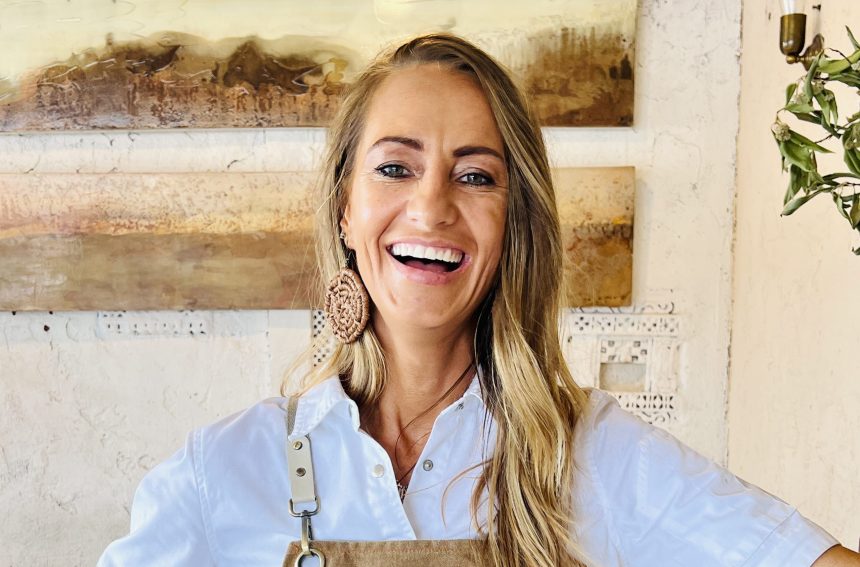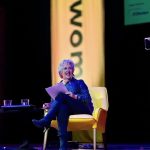When chef-owner Mindy Woods was announced as the 2025 Champion of Change by The World’s 50 Best Restaurants, she was as surprised as she was honoured. A proud Bundjalung woman, Woods has long championed native Australian ingredients and cultural reconnection through her work at her first venture, Karkalla, a restaurant in Byron Bay, and now at Karkalla On Country in the heart of Bundjalung Country. Driven by a vision to create space where both Indigenous and non-Indigenous people could come together through food, art and storytelling Woods invites guests into a deeper connection with the land, Aboriginal culture, and the sacred ingredients that have sustained generations.
This new recognition from World’s 50 Best – international, institutional, and powerfully symbolic – is a moment of collective pride for her family, her community, and the First Nations food movement she continues to nourish.
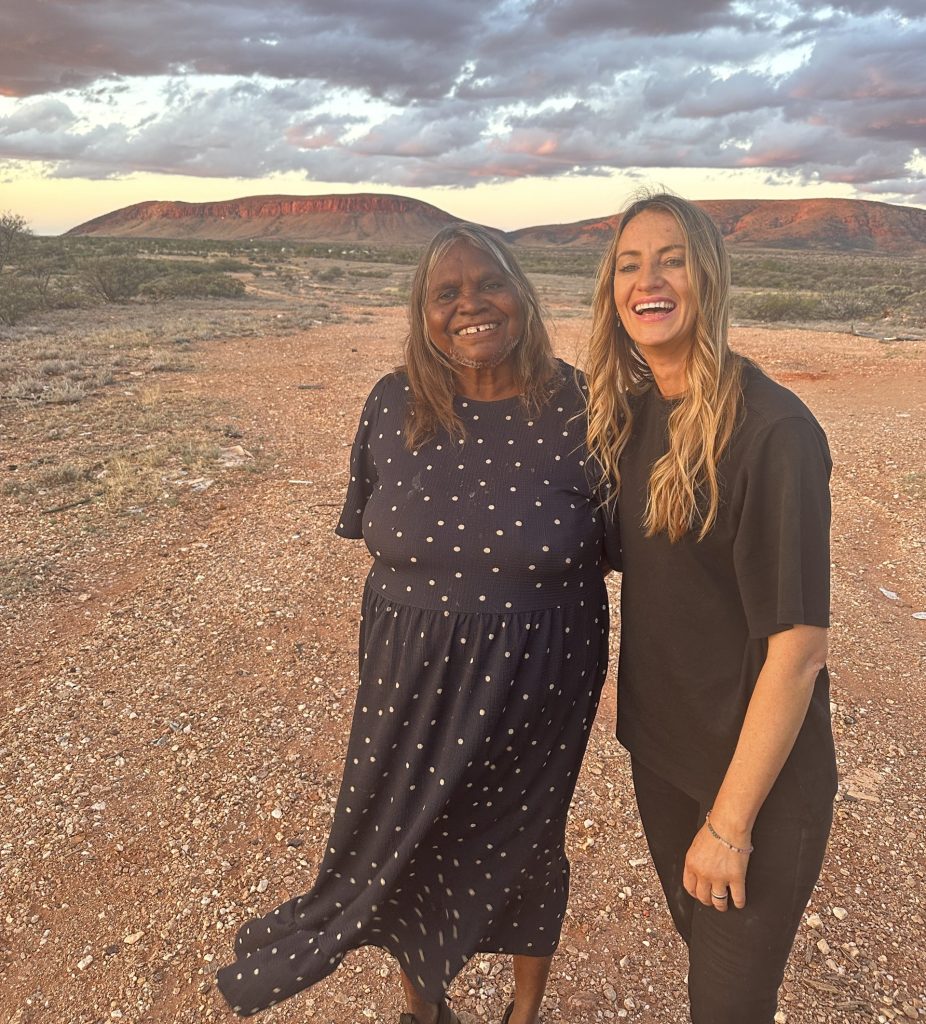
As well as as being a chef – owner, Woods is also the author of her cookbook Karkalla at Home, serves as a Board member of Black Duck Foods, and works as a Landcare ambassador and cultural educator in schools.
As the first queer Indigenous woman to appear on MasterChef Australia, she used her platform to elevate Aboriginal culinary traditions and advocate for greater cultural representation and a more inclusive food industry that supports minority voices. Her time on the show sparked critical conversations about identity, representation and the value of Indigenous knowledge in contemporary food culture.
Launched in 2021, the Champions of Change Award honours individuals leading positive change and long-term progress in the food and hospitality industry
William Drew, Director of Content for The World’s 50 Best Restaurants, made the following statement about Mindy’s win: “The Champions of Change Award recognises those making a significant impact on the future of hospitality, and we are proud to honour Mindy, who is such a deserving recipient this year. The work she is doing to preserve and share Indigenous culture through food is truly admirable, and we are excited to support the continued development of her invaluable contributions.”

Mindy Woods is bringing Australia to the table – native flavours, ancestral wisdom and a global accolade- all in hand. Irresistible caught up with her over one rich conversation, where she spoke about her mentors, her matriarchs, and her mission to foster belonging through food. What follows is a poetic and generous account of a chef whose work—rooted in soil, spirit, and slow-cooked knowledge—is nothing short of transformative.
How nice to meet you, and congratulations on your award. That is so fantastic. How does it feel?Mindy Woods: Unbelievable. It is so overwhelming. I didn’t even know the award existed! Of course, I knew about The World’s 50 Best Restaurants, but I never imagined I’d be on their radar. To be recognised like this, especially as a Champion of Change, is such a beautiful, feel-good moment. It means so much to my family and community—especially my elders. It says to all of us that First Nations people do have a place. We do have a seat at the table.
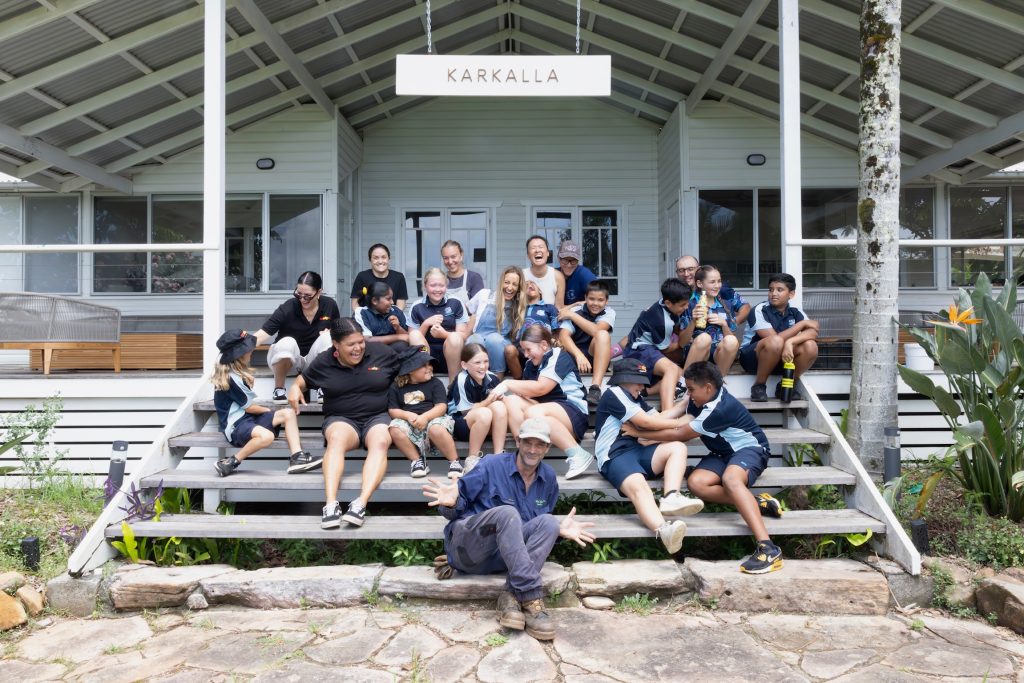
Awards like this often have a ripple effect. Do you think this kind of recognition helps open doors for others?
MW: Absolutely. You can’t be what you can’t see. So, I hope this helps others feel seen and inspired. But more than that, I hope it gives all Australians an opportunity to connect with our rich, vibrant history. This is a shared history, and I truly believe native food can bring us together—it’s a gateway to reconciliation, to pride, to belonging.
We’re all for celebrating that. We love your work at Irresistible—there’s such a positive sense of purpose to everything you do.
MW: Thank you! I love Irresistible. There’s so much negativity in the media right now, but we’ve got so much to celebrate. And when we shine a light on grassroots stories and the people making a difference, that’s powerful. We all need a reason to connect. You’re giving people that chance.
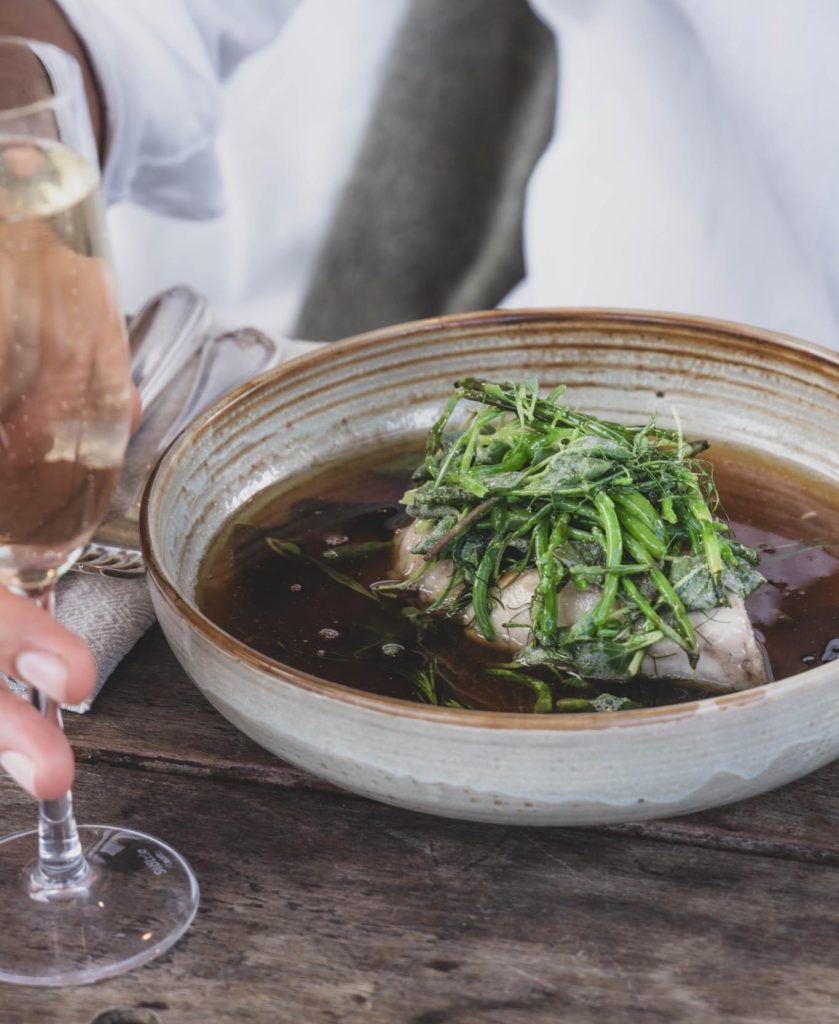
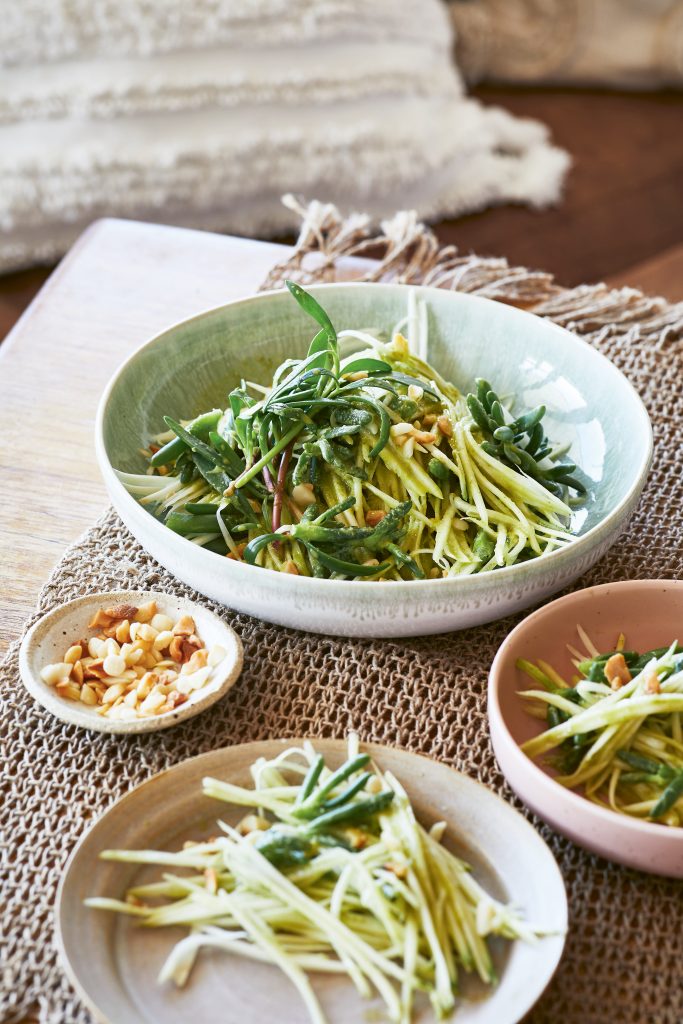
The Champions of Change Award is the fourth of several accolades to be revealed ahead of The World’s 50 Best Restaurants 2025 awards ceremony, which will be held in Turin, Region of Piedmont, Italy, on the evening of Thursday 19 June. This year’s programme will include a series of key events which have become the foundation of 50 Best Restaurants celebrations: thought-leadership forum #50BestTalks, exploring some of the most pertinent topics affecting the hospitality world today; the 50 Best Signature Sessions series of collaborative dining events open to the public, which sees 50 Best chefs cooking alongside renowned local talent for exclusive dining opportunities; a Chefs’ Feast showcasing the finest quality ingredients and cooking techniques the region is known for; and the awards ceremony and countdown itself.
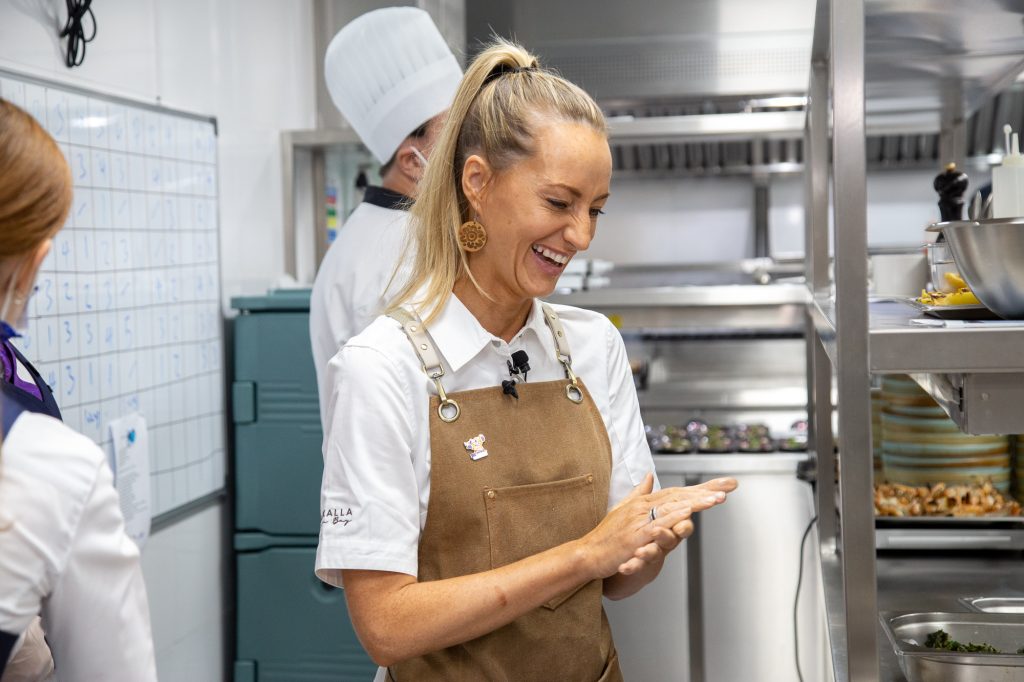
You’ve often spoken about food as a way to connect to land, culture and people. How do you hold on to that in a professional kitchen?
MW: Well, it’s the chef’s dream, really. Everyone talks about “farm to table,” but not many chefs get to actually live it. I moved my restaurant from a traditional setting to be on Country. Now, I literally walk the land I source food from. I harvest it. I share those stories with guests—what ingredients were used for traditionally, whether as food, medicine, or cultural tools. Then I teach people how to cook with them. That’s where connection happens—not just to food, but to place, to culture, to spirit. That’s when people begin to understand what Country really means.
That’s beautifully said. Do you write about food too?
MW: Not as much as I probably should! But I do love to tell stories. My partner is Croatian, and food is a huge part of her culture too. I’ll never forget when we travelled to Split for the first time. We walked through a marketplace, and she looked around at all the old Babas (grandmothers) and said, “These are my people.” She finally understood what I meant by connection to Country. And I said, “Yes—this is your version of what I’ve been trying to describe.”
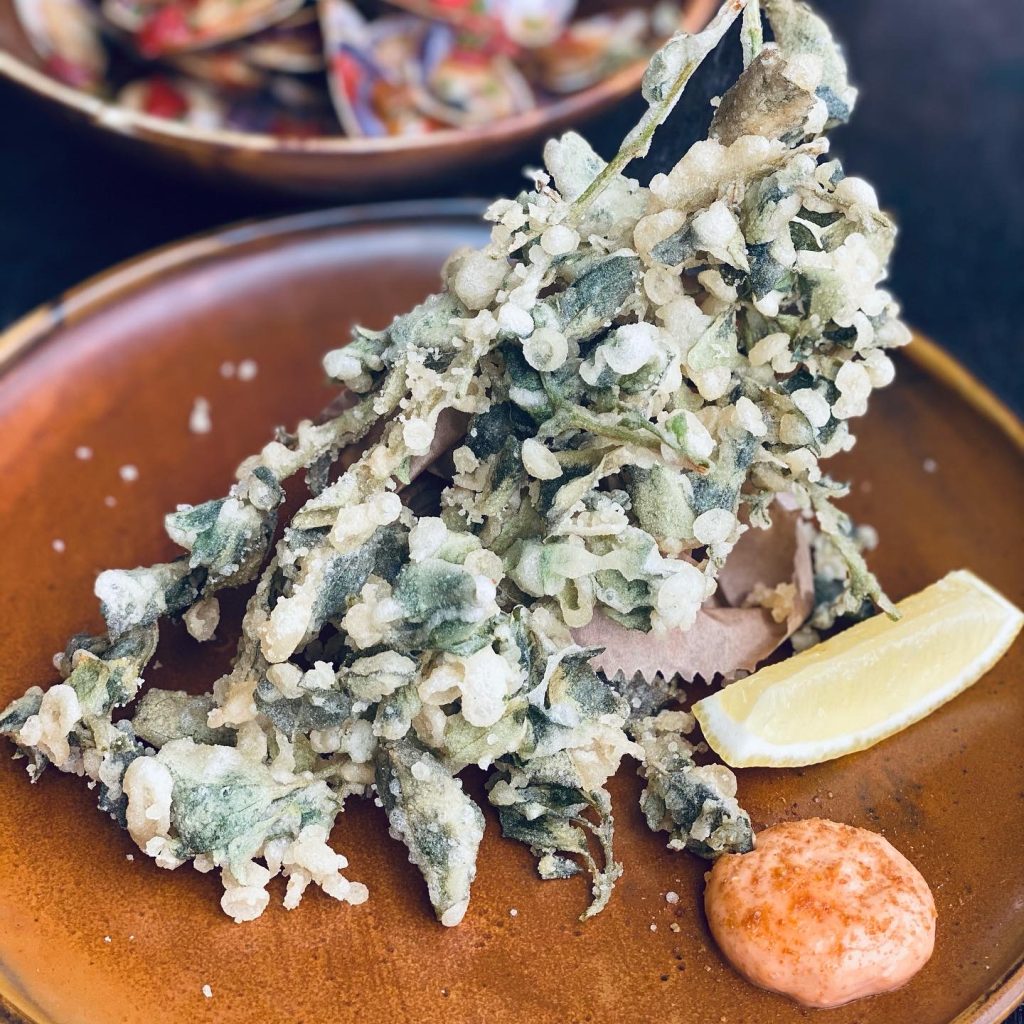
IRR: Was there a dish or ingredient from childhood that’s stayed with you?
MW:I grew up in a big mob—my mum was one of twelve, and we spent holidays with my Nan, on Bundjalung Country. We’d collect pipis and oysters on the beach. I was fair-skinned and got sunburnt easily, so Nan would race me up into the sand dunes, pick the karkalla (pigface), and rub it on my skin to soothe the burn. It was food, it was medicine, and it was culture. That’s why I named my restaurant Karkalla—after her and that memory. She wasn’t allowed to speak her language or practise culture. But I can. So I do, for her.
Your journey has been fascinating. From MasterChef to now, who have been your greatest influences?
MW: It always goes back to family. My Nan, of course. But also the incredible black women around me—my aunties, my elders. I still go to them for advice and permission. The knowledge I share isn’t mine; it’s been passed down through generations. I just hope I’m honouring it. What I’m doing now, it gives them hope that things are changing—that First Nations culture is finally being respected for the wisdom it holds.
You do a lot of work in community too, often behind the scenes. What has been most rewarding?
MW: Honestly, I don’t feel like it’s work. It’s a privilege. I moved back home from Sydney because my aunties said, “It’s time.” Now I work on Bundjalung Country, revitalising food culture and reconnecting our mob with their sovereign foods. I teach young Aboriginal mums how to cook healthy meals with native ingredients. I give them slow cookers, spice packs, my cookbook. We’re nourishing families and building pride. That’s what fills my cup.

What advice would you give the next generation of First Nations chefs?MW: Connect with your purpose. If food is your passion, follow it. The history we hold in our ingredients—first bakers, aquaculture pioneers, the oldest living culture on Earth—it’s world history. Our native foods are sustainable, nutrient-rich, and they belong here. Ancient ingredients, modern flavours—that’s the future of food. And when you understand the lineage of an ingredient, you’re not just cooking. You’re carrying culture.
Is there formal training you’d recommend?
MW: More than training, find an environment that embraces you. I believe in kitchens without ego. In my team, we follow First Nations leadership principles—respect and contribution. Everyone brings something. There’s no hierarchy. When you cook with respect, the food tastes better. The energy is better. That’s how we should all work.
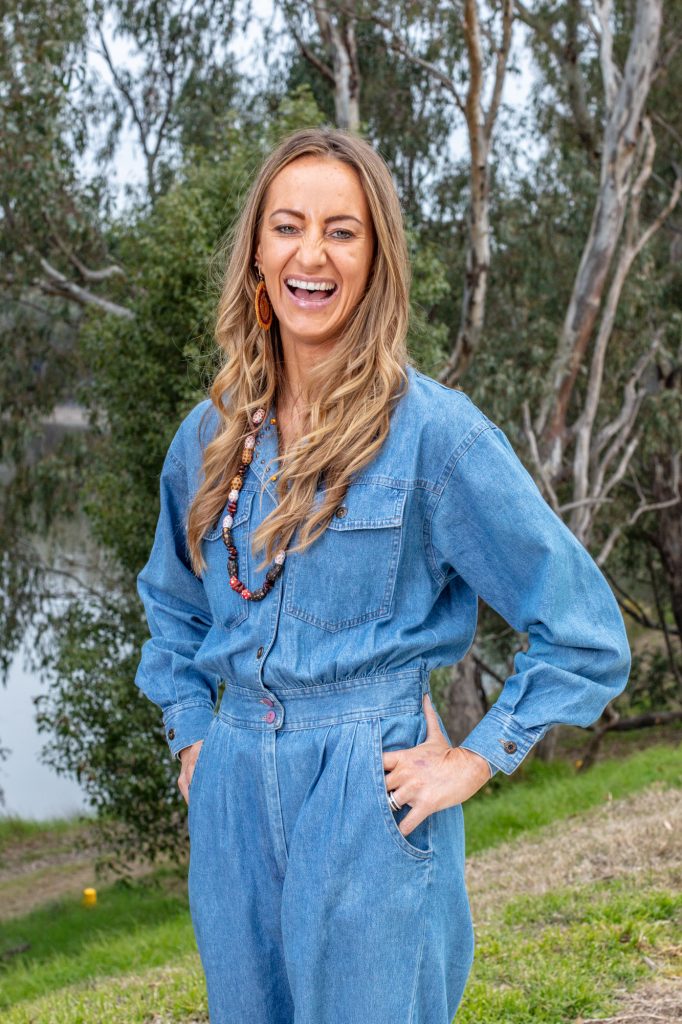
You’re based in the Cavanbah/Byron Bay region now. Has it changed much for you?
MW: Byron has always been a place of change. The original name Cavanbah means “meeting place.” It’s a healing place. People come when their spirit needs to. Some stay, some move on. But there’s still a strong community here—people who want to protect its cultural truth. I love that it evolves. That’s what Country does.
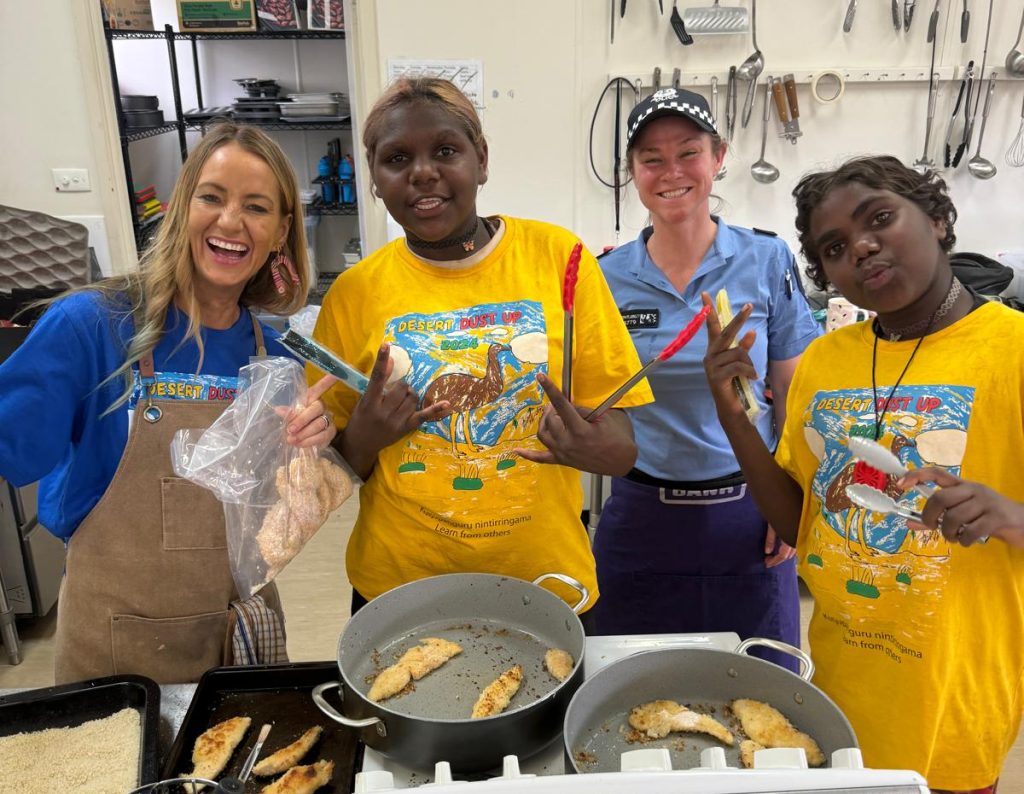
What’s next for you?
MW: I’d love to take this message global, but my focus is still here—on Australia. I want every Australian to feel pride and belonging. When I cook for you, you’re my mob. If I can inspire people to get curious about their local Country—Who are the traditional custodians? What grows there?—then I’m doing my job. Because food connects us. Always has.
Final question: what’s your favourite dish right now?
MW: It’s getting cool, so I’ve been making a native dahl inspired by my time in Malaysia as a kid. I use muntries, saltbush, aniseed myrtle, lemon myrtle, cinnamon myrtle—it’s a hug in a bowl. So simple, but full of flavour. And it proves that native ingredients can work with any heritage. I’ve even done a Croatian-style brudet with bush tomato and lemon myrtle instead of bay leaves. That, to me, is reconciliation on a plate.
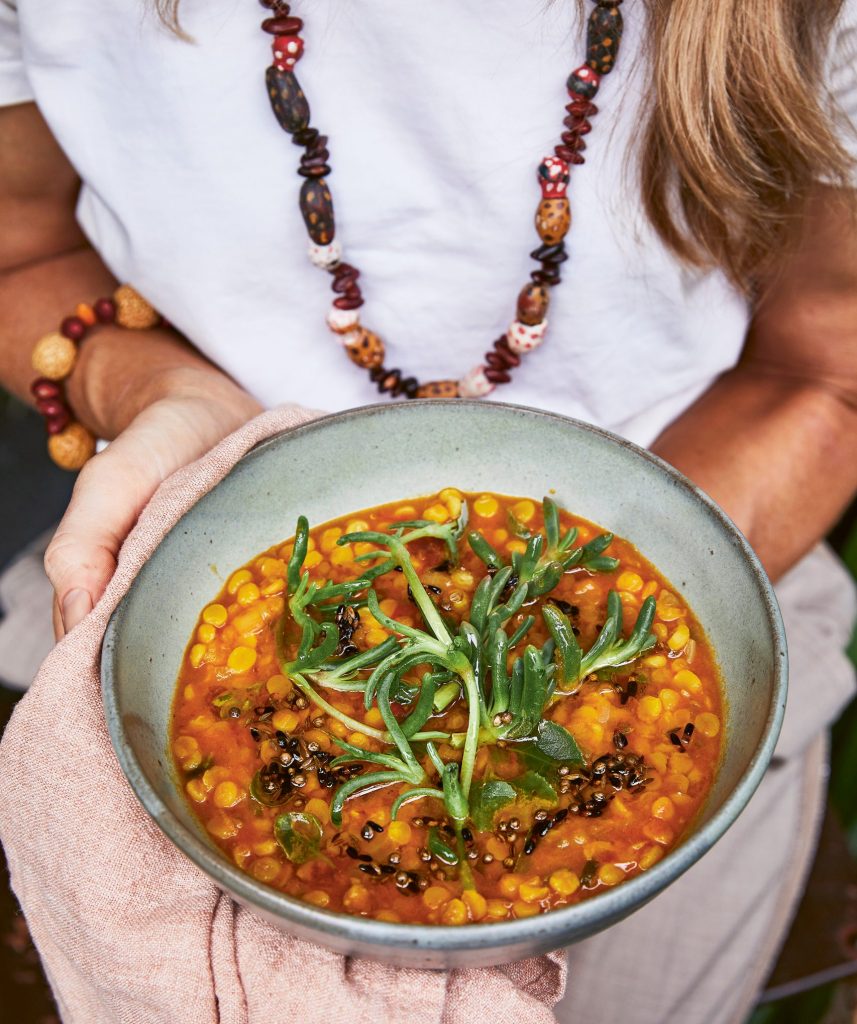
Experience Karkalla On Country on Bundjalung land, near Byron Bay.
The cookbook Karkalla at Home is available now.




